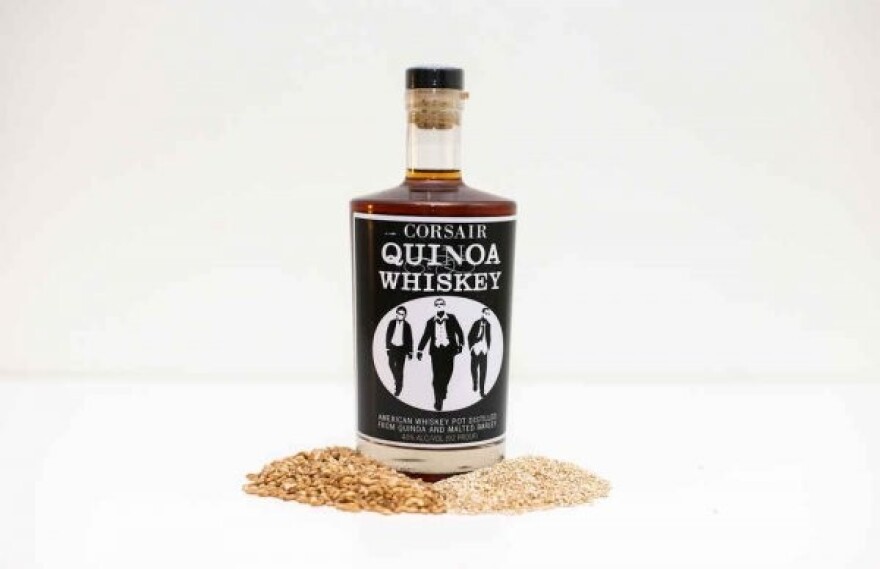By definition, whiskey is a grain spirit. And until now, that "grain" has been limited by federal law to four specific crops: corn, wheat, rye and barley.
So, when Darek Bell, the founder of Corsair Distillery in Nashville, Tennessee wanted to start experimenting with an alternative, there wasn't really a playbook to follow.
“We started looking at a whole lot of grains that were coming out of sort of the health food movement, the green movement,” Bell said. “We’re thinking, ‘What would it taste like to distill this?’”
Bell and Corsair settled on quinoa. And the distillery — which also has a location in Bowling Green, Kentucky — has been producing and distributing quinoa whiskey since 2011.
With a grain profile of 20 percent quinoa and 80 percent malted barley, Corsair’s product is a spirit with a distinctly earthy and nutty flavor that may not immediately register on the palate as “whiskey.”
More importantly, up until recently, the federal government didn’t technically recognize it as whiskey either due to its limited definition of "grains."
At first, the Treasury Department’s Alcohol and Tobacco Tax and Trade Bureau, also known as the TTB, wanted the distillery to classify the product as a quinoa rum, then as a “neutral spirit.”
“Supposedly they called the USDA and they said ‘ yes, these are in fact grains’ and gave us the go-ahead,” Bell said.
But last week, the TTB took a step to make this officially on the books. On December 3, the bureau outlined a new definition for what crops count as grains, as part of a132-page list of updated recommendations for the labeling of wine, beer and spirits.
Per the new TTB proposal, the list of grains now includes “cereal grains and the seeds of the pseudocereals amaranth, buckwheat and quinoa.” And this is a big deal for craft distillers like Bell.
Colin Blake said this proposed change could be really beneficial for creativity in the spirits industry; he’s the director of spirits education at Moonshine University, a distilling education program in Louisville.
“And I think it’s fantastic for the category that people can start making what can be classified as whiskey with these new grains,” Blake said.
According to Blake, he’s already had people in his classes asking about distilling with alternative grains.
And Clay Smith, who used to be a distiller for Corsair and now also works at Moonshine University, said he feels like those questions are essential to developing the industry.
“[They ask] ‘Have you made this? Have you done it with this?,’” Smith said. “And maybe 70 to 80 percent of the time, we’re like ‘yeah, we’ve done it and here’s why you shouldn’t do it,’ but those are always the most fun questions from people.”
According to Blake, they’re going to have to keep asking those questions as distillers start experimenting more with these alternative grains.
“The inclusion of these new grains is doing to be a tremendous time of learning because people have centuries of experience of how to process and make the traditional four grains into whiskey,” Blake said. “But all of the sudden — buckwheat, no one has really done it. It’s rock hard.”
But distillers like Darek Bell at Corsair are looking forward to the challenge:
“Here’s my thing, if I’m making a painting, I want to have as many colors in my palate that I can paint with,” Bell said. “So as I’m making these whiskeys going forward, maybe it’s just a small touch of oatmeal that adds a little more to the body of the whiskey, or just a little bit of quinoa that adds something different.”
The public comment period for the new TTB regulations is open until March 2019.


